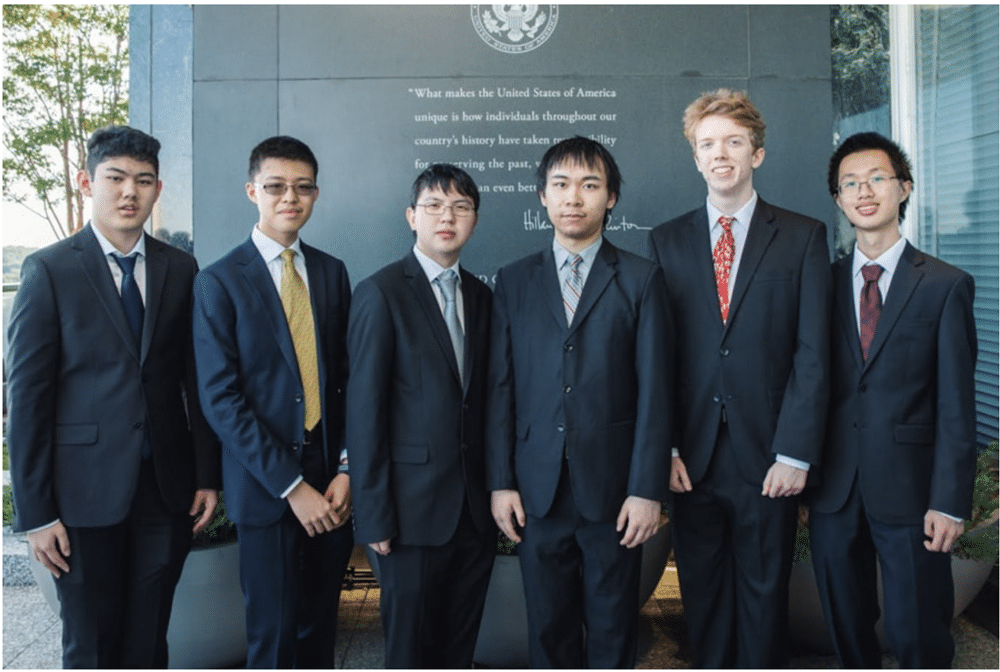Between July 6 and July 16, 2022 the brightest and the best students from more than 100 countries attended the International Mathematics Olympiad (IMO) in Oslo, Norway. On July 11, these intellectual gladiators were given 3 difficult problems to solve in a period of 4.5 hours, and then another 3 problems the following day. Each solution was assigned a mark between 0 and 7 with 7 representing a perfect solution. An individual achieving a score of 7 on each of the 6 problems would achieve a perfect score of 42 for the problem set. The score attained by the team representing a country is obtained by adding the individual scores of the 6 members of the team, so the maximum score for a team is 6 x 42 or 252. Guess what country stood at the top? If you guessed China, your instincts have served you well. Their team score was a perfect 252 points out of 252 possible points.
In second place, was Korea with a team score of 208–a significant distance behind first place. In third place, with a score of 207, was the US, and in fourth place stood Vietnam with a score of 196. Last year, the US stood first at the IMO–a relatively rare achievement in the past three decades. The photo below of the members of that team speaks volumes.

The 2021 US Math Olympiad team members: Vincent Huang, Colin Tang, Edward Wan, Brandon Wang, Luke Robitaille, and Daniel Zhu.
The IMO is a wonderful event that celebrates intellectual achievement and promotes international goodwill. However, it also provides an insight into the degree to which different nations promote mathematics and mathematics education. Results of the PISA and TIMSS studies comparing the performance of students from Grades 4 through high school reveal that the East Asian countries are significantly outperforming the West in mathematics and science, and the gap is increasing.
Since science and technology rest on a foundation of mathematical competence, the United States and Europe will require a population with a high level of mathematical literacy if they are to compete in the global economy and defend borders under growing aggression from dictators. The war in Ukraine should be a wake-up call, reminding us that our civilization seems to be as tribal in the 21st century as it was in the 20th century–and weakness continues to invite aggression.
In The Code Book, Simon Singh observes:
Although cryptography is now having a major impact on civilian activities, it should be noted that military cryptography remains an important subject. It has been said that the First World War was the chemists’ war, because mustard gas and chlorine were employed for the first time, and that the Second World War was the physicists’ war, because the atomic bomb was detonated. Similarly, it has been argued that the Third World War would be the mathematicians’ war because, mathematicians will have control over the next great weapon of war–information. Mathematicians have been responsible for developing the codes that are currently used to protect military information. Not surprisingly, mathematicians are also at the forefront of the battle to break these codes.
Although we must always guard against the tendency to become xenophobic, we must also be vigilant about our national security as escalating international tensions continue to threaten human civilization.
